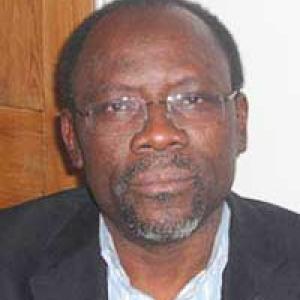Informing Nigerian policy towards Boko Haram
Research carried out by the Nigeria Research Network at ODID is helping to shape a new policy approach to the Islamist insurgency in northern Nigeria.
Since 2009, Nigeria has been battling an insurgency associated with Boko Haram, the Islamist group that gained global notoriety through the abduction of more than 200 schoolgirls in Chibok, and its subsequent affiliation to ISIL.
Over 15,000 lives have been lost in the fight against Boko Haram and vast swathes of Nigeria’s northeast region lie in ruins. Schools have remained closed for years, and farmers go to work in their fields at risk of being killed or abducted. By 2015, there were reported to be 2.1 million internally displaced persons as a result of the insurgency.
To begin with, Nigeria’s response to this insurgency was largely military. However, from 2014, under the auspices of the Office of the National Security Adviser (ONSA), efforts were made to diversify that response. This involved the development of a ‘society-focussed’ approach that emphasised countering radicalisation and promoting development.
A key component of this ‘soft’ approach was a Countering Violent Extremism (CVE) Programme. This programme sought to understand the primary drivers of radicalisation and the development of strategic communications to prevent it. For research into this thorny and increasingly politicised issue, the ONSA approached the DfID-funded Nigeria Stability and Reconciliation Programme (NSRP), who in turn called on the ODID-based Nigeria Research Network (NRN).
The Nigeria Research Network
The NRN is a network of specialists based on four continents with wide-ranging research experience on northern Nigeria. About half the affiliates of the network had been doctoral research students at ODID before moving on to academic and research positions in other institutions. Making use of this extensive multidisciplinary expertise, the NRN conducted research on a wide range of topics connected with the processes of radicalisation and counter-radicalisation.
They explored issues such as how child-rearing practices and rites of passage might link to radicalisation, as well as examining the almajiri system of Quranic education. They also looked at the important roles of Islamic scholars in the interpretation of key texts, and their use of different media formats.
They looked at the impact of youth unemployment and the interface between Islamic sects and the informal economy as well as exploring gender norms and patterns of female participation in the insurgency. An investigation of the profiles of publicly known Boko Haram members was also carried out.
In an attempt to understand the wider context to the insurgency, they explored the flow of ideas, organisations, and weapons in the Sahel and West Africa more broadly and conducted a socio-geographical study of why the insurgency erupted in Bornu.
Researchers also carried out a comparative study of counter-radicalisation efforts in countries like Egypt, and examined the consequences of the military ‘hard approach’ among the populations of the northeast.
Dissemination to the new presidency
The research resulted in five policy briefs for the ONSA and 11 chapters of a proposed edited volume for the wider academic community. The policy briefs and the research reports were widely circulated among Nigerian officials, including to senior members of the new Buhari presidency which came into office in 2015. A public workshop involving officials of the Nigerian government, representatives of foreign missions, and important aid agencies was also held in Abuja in January 2015. Plans are under way to make presentations to specialised institutions, such as the multinational Lake Chad Basin Organization.
In a letter to ODID, a senior official of the ONSA described the NRN’s input as ‘seminal’, and said the research had let to a broadening of the policy space, resulting in changes to the soft approach.

